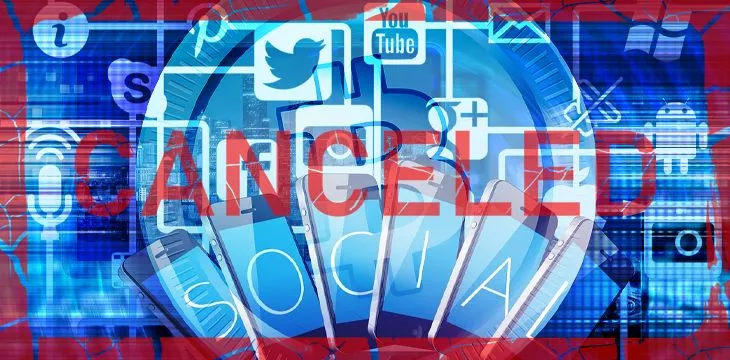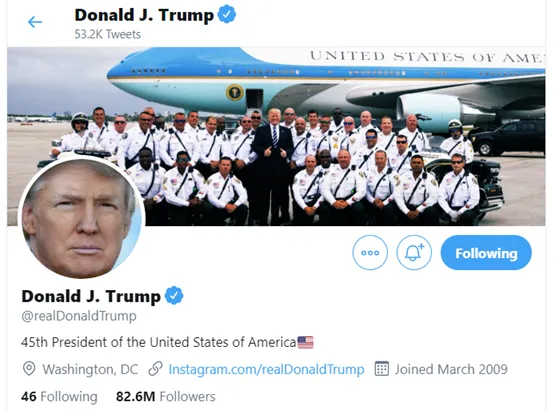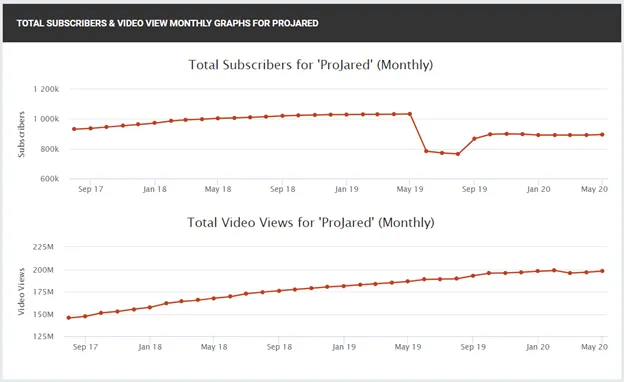|
Getting your Trinity Audio player ready...
|
Cancel culture seems to be spreading as fast as the coronavirus over the past month as many political figures, content creators, companies and influencers are being purged, boycotted, forced to apologize or all the above.

The potential for influencers to monetize directly from their following as opposed to from the tech giants via adverts softens the blows that these controversial figures take. To offset the broken advertisement income model, content creators must additionally collect funds from their following in a roundabout way such as Patreon or donations instead of simply directly charging for consumption.
The inability to execute micropayments on the web has created the unintended consequence of making political views and popularity as the driver of eligibility for monetization instead of being an afterthought. Many large companies and their self-imposed requirements to be ‘politically correct’ are forced on creators because of the inefficient advertising model. Platforms must cater towards what is popular to justify ad revenue instead of what is of quality.
In physical, everyday transactions, this model is quite different. Isaac Morehouse and T.K. Coleman (1/2 of the Numpty Bunch) recently had a brilliant discussion about the recent happenings. Isaac spoke about how a great aspect of the market is that he does not need to know the religion or political affiliation of those who work at the store he shops at (timestamped link below):
Unfortunately, Internet platforms do need to know your political affiliation because it affects their ability to monetize from advertisers. This situation results in misaligned incentives.
For example, if a user had to pay a small amount to the creator and video platform in order to watch a video, the platform would not care as much about the politics of the content (unless of course it truly is hateful, abusive or illegal). The platform would care more about how many views the content receives because they earn on each view.
They would have an incentive to care less about the political affiliation of the creator and more about the actual value added by that person, and thus would be hesitant to arbitrarily nuke their channel because the platform dislikes or disagrees with the opinions of the creator.
In the below Streamanity clip, CFO of Twetch Aaron Burns discusses their approach to censorship and how they welcome all kinds of content, regardless of political, racial or gender affiliation:
This is possible because of the micropayment model of Twetch, where the platform earns revenue on each interaction, but the influencers earn directly from their following.
This is why I believe we have yet to see Twitter ban U.S. President Donald Trump because he, with his 82.6 million followers, simply makes them too much money.

A counterargument may be that viewers will effectively ‘cancel’ the creator in the event of a scandal or unsavory action by no longer watching their videos or following them. This is debunked by the likelihood that a subset of their following will not care enough to boycott—regardless if the incident took place five minutes ago or five years ago.
If a creator receives 10 cents per view from their 1 million subscribers, but then they lose 20% of their following in the micropayment model instead of 100% via being canceled in the advertising model, this should hardly bankrupt the creator. Most people will accept a 20% decrease in revenue vs. 100% as a natural consequence of their actions.
In an incident in 2019 with the gaming YouTuber ProJared, an attempt to cancel him fizzled out. The details of this situation are outside the scope of this article, but after losing almost 25% of his YouTube subscribers in May 2019 from 1.03 million, he is back with almost 900K subscribers and going strong.

Stefan Molyneux recently had his YouTube channel of 14 years banned for one reason or another, and made a statement on Twitter:
My statement on my YouTube ban.
Please share. It is essential. pic.twitter.com/m3veHfgPsk
— Stefan Molyneux, MA (@StefanMolyneux) June 29, 2020
His statement is prescient, regardless of one’s views about his political views. At the end, he asks for donations which would be unnecessary if he could simply charge $0.01 to watch his 2-minute video, he would have made $13,000 from the 1.3 million views (as of writing this article).
Bitcoin enables micropayments over the Internet such that the transaction cost floor of ~$0.30 is erased. Platforms should not have to care about the opinions of their content creators, they simply want a fair exchange of value. With Bitcoin, we can make this exchange apolitical, making an online exchange as fair as one with your local coffee shop.

 07-14-2025
07-14-2025 




